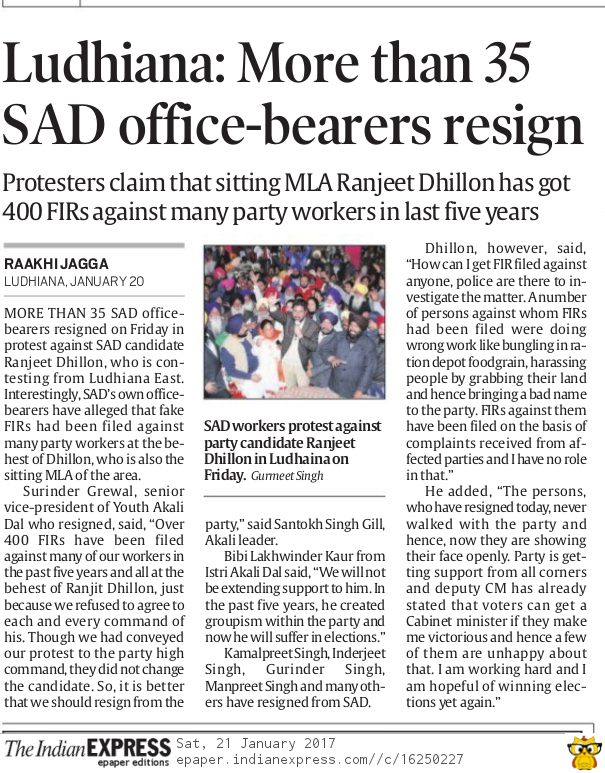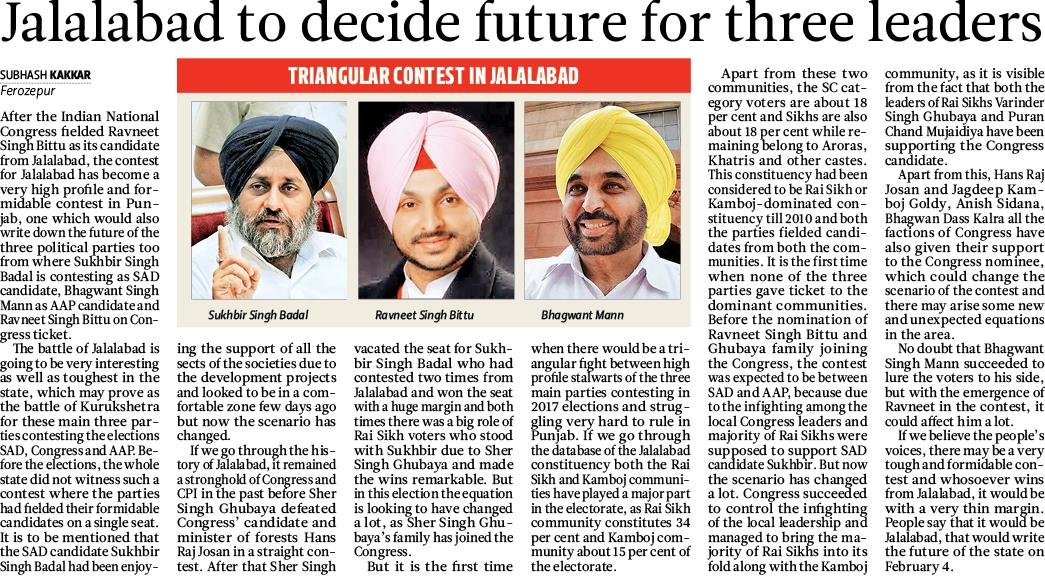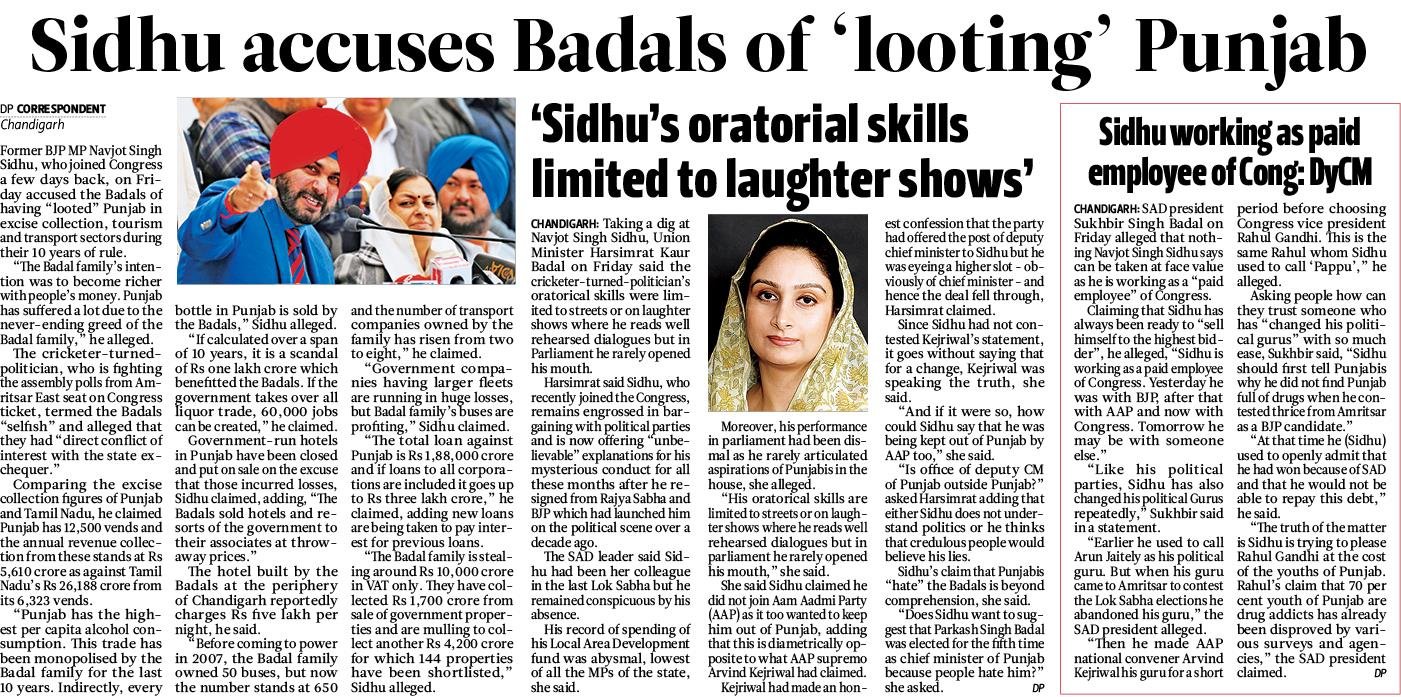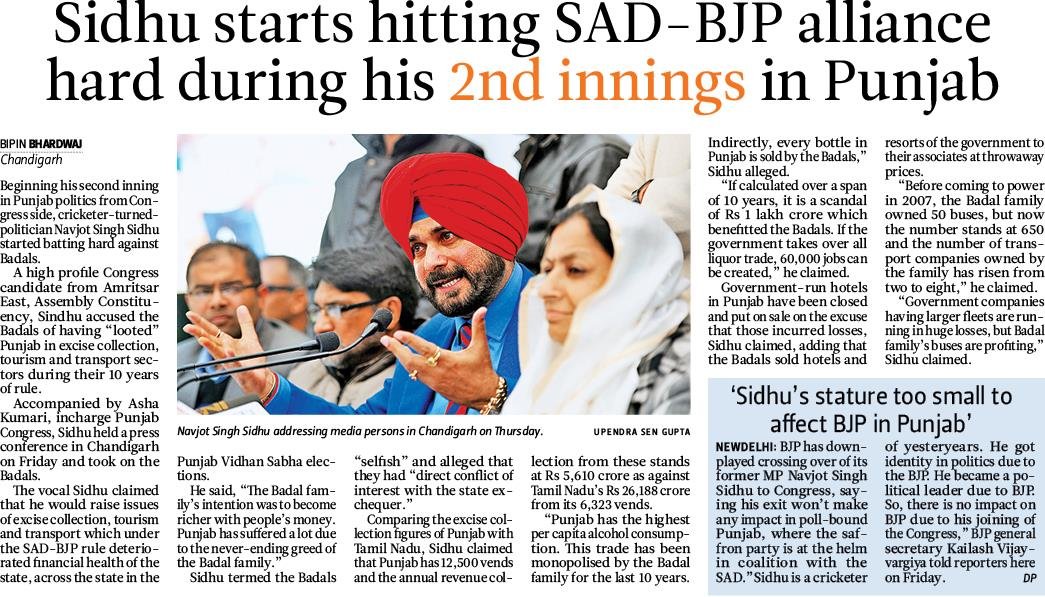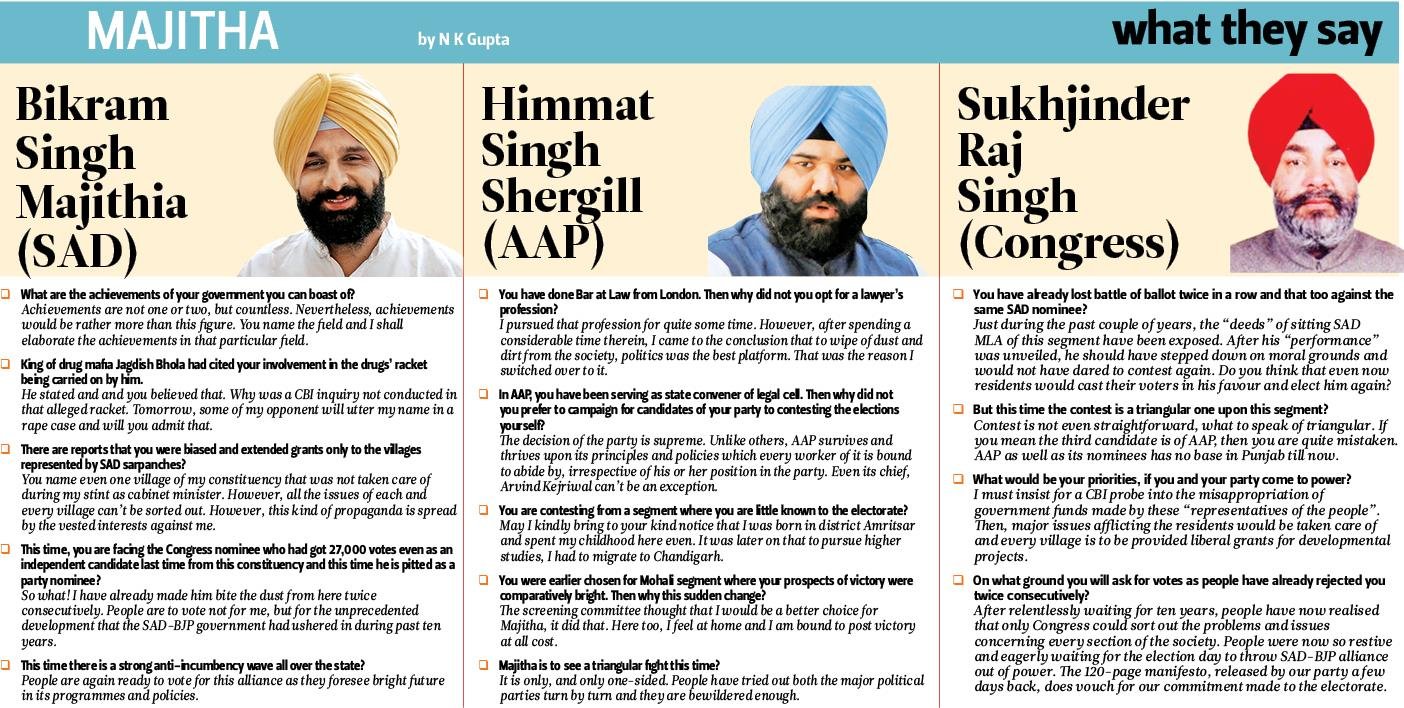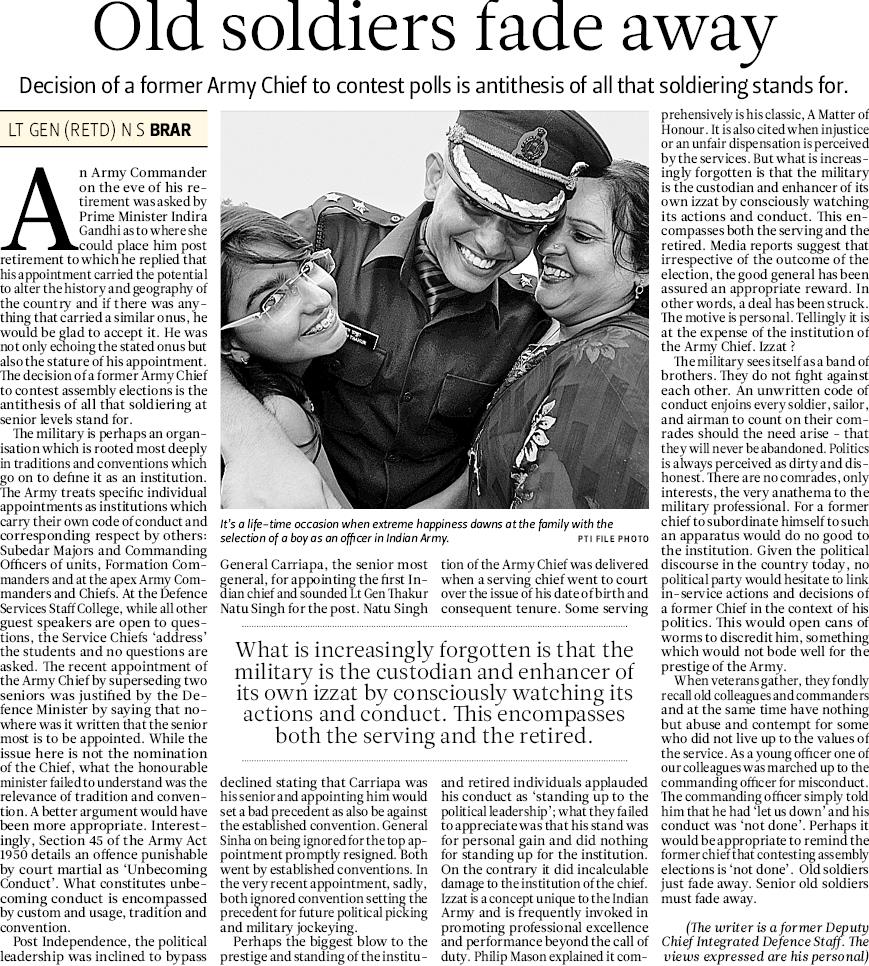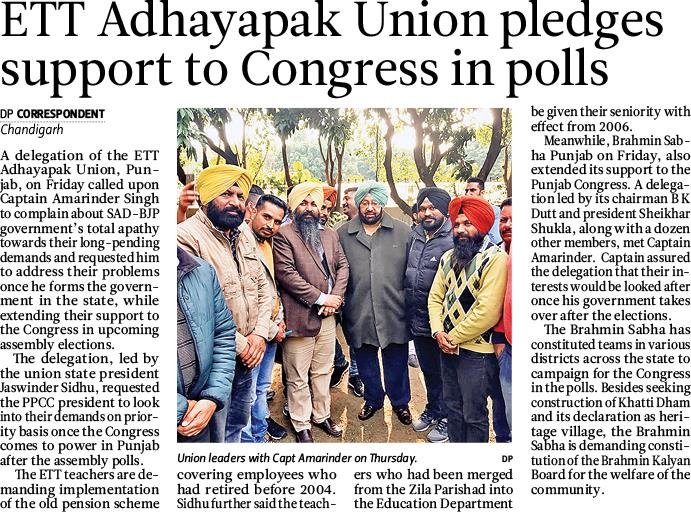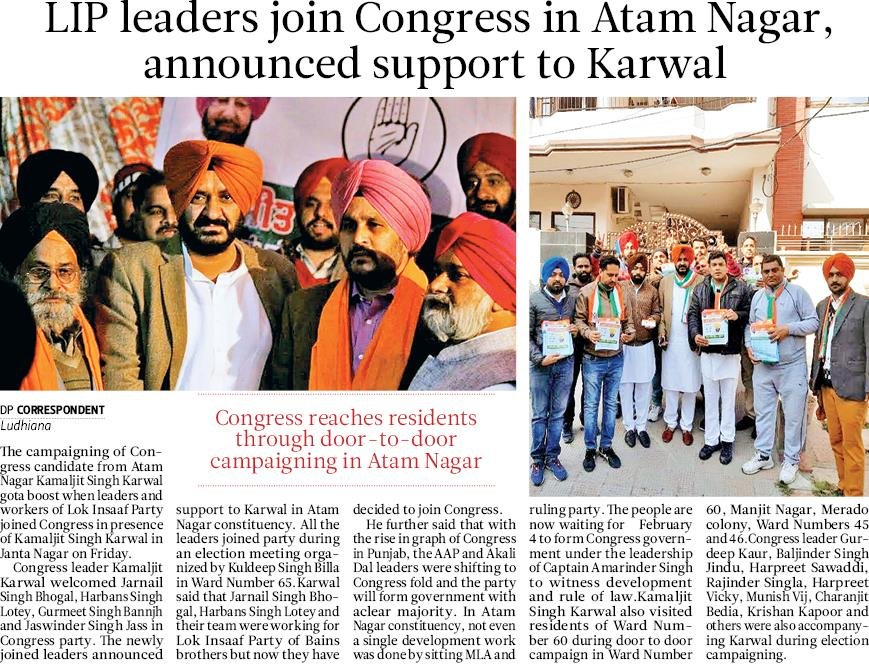| |
|
 PARAM VISHISHT SEVA MEDAL PARAM VISHISHT SEVA MEDAL
|
1. IC-34410H LT GEN SATYA PAL SINGH KATEWA, AVSM, ASC
2. IC-34605N LT GEN RAKESH SHARMA, UYSM, AVSM, VSM, INF
3. IC-34760P LT GEN PRAVEEN BAKSHI, AVSM, VSM, ARMD
4. IC-34829N LT GEN SANJIV TALWAR, AVSM, ENGRS
5. IC-34901Y LT GEN PALEPU RAVI SHANKAR, AVSM, VSM, ARTY (Retd)
6. IC-34954X LT GEN AMIT SARIN, AVSM, SM, VSM, AOC
7. IC-35109Y LT GEN RAJEEV VASANT KANITKAR, AVSM, SM, VSM, ARMD
8. IC-35115M LT GEN JAGBIR SINGH, AVSM, SM, VSM, MECH INF (Retd)
9. IC-35137L LT GEN PATTIARIMAL MOHAMEDALI HARIZ, AVSM, SM, VSM, MECH INF
10. IC-35173W LT GEN RAYMOND JOSEPH NORONHA, AVSM**, SM, INF
11. IC-35206W LT GEN KONSAM HIMALAY SINGH, UYSM, AVSM, YSM, INF
12. IC-35487X LT GEN NARINDER PAL SINGH HIRA, AVSM, SM, INF (Retd)
13. IC-35494N LT GEN SUBRATA SAHA, UYSM, YSM, VSM**, INF
14. IC-35602M LT GEN ASHOK BHIM SHIVANE, AVSM, VSM, ARMD
15. IC-35650M LT GEN BOBBY CHERIAN MATHEWS, AVSM**, VSM, INF
16. IC-35915L LT GEN RAJEEV TEWARI, AVSM, ARMD
17. IC-35953F LT GEN AVINASH LAXMAN CHAVAN, AVSM, SM, VSM, INF
18. IC-37555Y LT GEN VINOD GULABRAO KHANDARE, AVSM, SM, INF
19. MR-03856W LT GEN VELU NAIR, AVSM, VSM**, AMC
20. MR-03911F LT GEN MANOJ KUMAR UNNI, AVSM, VSM, AMC
|
|
|
 KIRTI CHAKRA KIRTI CHAKRA
|
1. IC-63798F MAJ ROHIT SURI, 4 PARA (SF)
2. 5047749K L/HAV PREM BAHADUR RESMI MAGAR, 3/1 GORKHA RIF, (POSTHUMOUS)
|
|
|

UTTAM YUDH SEVA MEDAL
|
1. IC-35960X LT GEN SHRAVAN KUMAR PATYAL, SM, INF
2. IC-35965W LT GEN RAJENDRA RAMRAO NIMBHORKAR, AVSM, SM**, VSM, INF
3. IC-38311X LT GEN SATISH DUA, SM, VSM, INF
4. IC-38654N LT GEN DEVRAJ ANBU, AVSM, YSM, SM, INF
5. IC-38679A LT GEN ABHAY KRISHNA, AVSM, SM, VSM, INF
|
|
|
 BAR TO ATI VISHISHT SEVA MEDAL BAR TO ATI VISHISHT SEVA MEDAL
|
1. IC-38266W LT GEN SURINDER SINGH, AVSM, VSM, INF
2. IC-38708K LT GEN ASHOK AMBRE, AVSM, SM, INF
|
|
|
 ATI VISHISHT SEVA MEDAL ATI VISHISHT SEVA MEDAL
|
1. IC-34789X LT GEN RAMAN DHAWAN, VSM**, ARTY
2. IC-35145K LT GEN JASTEJ SINGH MATHARU, VSM, EME
3. IC-35188Y LT GEN RAKESH KUMAR SHARMA, SM, INF
4. IC-35610L LT GEN BALBIR SINGH SANDHU, VSM, ASC
5. IC-35923K LT GEN JAGBIR SINGH CHEEMA, VSM, INF
6. IC-35929L LT GEN VINOD VASHISHT, VSM**, ARTY
7. IC-37316K LT GEN PRADEEP SINGH MEHTA, VSM, ARMD
8. IC-37795W LT GEN VISHWAMBHAR SINGH, VSM, ENGRS
9. IC-38011W LT GEN PANKAJ KUMAR SRIVASTAVA, VSM, ARTY
10. IC-38300L LT GEN VIVEK PRATAP SINGH, YSM, INF
11. IC-38403K LT GEN SHOKIN CHAUHAN, YSM, SM, VSM, INF
12. IC-38750H LT GEN MANOJ MUKUND NARAVANE, SM, VSM, INF
13. IC-38879W LT GEN ASHWANI KUMAR, VSM, AAD
14. IC-39846X LT GEN ASHISH RANJAN PRASAD, VSM, SIGS
15. IC-40098F LT GEN DUSHYANT SINGH, INF
16. MR-04014X LT GEN SUKH DAYAL DUHAN, VSM, AMC
17. IC-38494Y MAJ GEN ANIL KHOSLA, SM, VSM**, INF
18. IC-39500N MAJ GEN CHRISTOPHER EMANUEL FERNANDES, SM, VSM, INF
19. IC-39607H MAJ GEN IQROOP SINGH GHUMAN, INF
20. IC-39655H MAJ GEN HEMANT JONEJA, VSM, INF
21. IC-40302P MAJ GEN RAVENDRA PAL SINGH, VSM, MECH INF
22. IC-40703K MAJ GEN HARPAL SINGH, VSM, ENGRS
23. IC-40792N MAJ GEN DEV ARVIND CHATURVEDI, SM, INF
24. IC-41067N MAJ GEN JAI SINGH NAIN, SM, INF
25. IC-41080X MAJ GEN GOPAL GURUNG, SM, INF
26. IC-41102L MAJ GEN JARKEN GAMLIN, SM, VSM, INF
27. IC-41141K MAJ GEN ASHOK KUMAR NARULA, INF
28. IC-41528M MAJ GEN HARINDER SINGH, YSM, SM, VSM, INF
29. IC-45200H MAJ GEN RAJINDER KUMAR, SM, VSM, JAG DEPT
30. MR-04726A MAJ GEN RAJAT DATTA, SM, VSM, AMC
|
|
|
 SHAURYA CHAKRA SHAURYA CHAKRA
|
1. IC-62423W LT COL ATUL GUPTA, MAHAR, 30 RR
2. IC-63616H MAJ D VINAY REDDY, 7 MADRAS
3. IC-71375H MAJ RAJAT CHANDRA, 4 PARA (SF)
4. IC 71834W MAJ DEEPAK KUMAR UPADHYAY, 9 PARA (SF)
5. IC-75878L CAPT ASHUTOSH KUMAR, 4 PARA (SF)
6. IC-79706N CAPT ASHIK MB, 1/5 GORKHA RIF (FF)
7. JC-414000Y NB SUB VIJAY KUMAR, 4 PARA (SF)
8. 2893254P HAV HANUMAN RAM SARAN, RAJ RIF, 18 RR
9. 2801206X NK GAWADE PANDURANG MAHADEV, MARATHA LI, 41 RR,(POSTHUMOUS)
10. 13628305N PTR ABDUL QAYUM, 9 PARA (SF)
|
|
|
 YUDH SEVA MEDAL YUDH SEVA MEDAL
|
1. IC-47692L BRIG GOVIND KALWAD, MARATHA LI
2. IC-48163L BRIG NAVDEEP SINGH BRAR, DOGRA REGT
3. IC-48522N BRIG ANUPAM BHAGI, SM, DOGRA REGT
4. IC-48530M BRIG SHRINJAY PRATAP SINGH, KUMAON REGT
5. IC-48659A BRIG HITTEN SAWHNEY, SM, GRENADIERS
6. IC-49024N BRIG ZUBIN A MINWALLA, 9 GR
7. IC-49322K COL RAJESH KUMAR SINGH, 1 GR, 43 AR
8. IC-56350Y COL BAL BAHADUR PUN, SM, 8 GR, 1 AR
9. IC-57784L COL AMITABH WALAWALKAR, PARA, 47 RR
10. IC-58628N COL KAPIL YADAV, SM, 9 PARA (SF)
11. IC-58743N COL SUBHANJAN CHATTERJEE, 15 BIHAR
12. IC-59076X COL INDER PREET SINGH, 3 RAJPUT
13. IC-59619Y COL PRATYUSH KUMAR, 5 RAJPUT
14. IC-60250L COL HARPREET SANDHU, SM, 4 PARA (SF)
|
|
BAR TO SENA MEDAL (GALLANTRY)
|

|
1. IC-67493Y MAJ MANOJ DOBRIYAL, SM, DOGRA, 40 RR
2. IC-76882A CAPT SUSHANT SHARMA, SM, SIGS, 55 RR
3. 13622006Y HAV ANIL KUMAR, SM, 9 PARA (SF)
|
|
 SENA MEDAL (GALLANTRY) SENA MEDAL (GALLANTRY)
|
1. IC-59142P LT COL RANJIT SINGH PAWAR, AOC, CAD PULGAON (POSTHUMOUS)
2. IC-61674N LT COL LAXMAN SINGH DEOPA, MAHAR, 1 RR
3. IC 64010L MAJ OLETY LAKSHMI VEERA NARESH, 27 MADRAS
4. IC-64501F MAJ KRISHNAN MANOJ KUMAR, AOC, CAD PULGAON (POSTHUMOUS)
5. IC-66918A MAJ ANURAG PANWAR, 4/1 GORKHA RIF
6. IC-67407H MAJ SHALENDER, SC, 4 PARA (SF)
7. IC-67558F MAJ PRABHANSHU SINGH, ARTY, 168 FD REGT
8. IC-67908H MAJ AMIT DESWAL, 21 PARA (SF) (POSTHUMOUS)
9. IC-68166A MAJ J AJAY NAIR, 4 PARA (SF)
10. IC-68651P MAJ HEGDE VINEET KUMAR P, ENGRS, 47 RR
11. IC-69208N MAJ RAKESH KUMAR, ASC, 55 RR
12. IC-70214N MAJ SHIVESH TIWARI, ASSAM, 42 RR
13. IC-70793L MAJ GAURAV GREWAL, EME, 44 RR
14. IC-70910L MAJ MANISH KUMAR KADIAN, SIKH LI, 2 RR
15. IC-71362L MAJ AMIT YADAV, 8 JAT
16. IC-71392H MAJ K AMIRTHA RAJ, MECH INF, 35 RR
17. IC-72359X MAJ SANDEEP KUMAR, SIKH LI, 19 RR
18. IC-72382L MAJ CHANDAN SINGH, GRENADIERS, 55 RR
19. IC-72417W MAJ ABHISHEK KUMAR, 4 PARA (SF)
20. IC-72668A MAJ VARUN SINGH, ENGRS, 47 RR
21. IC-72763M MAJ ATUL PARASHAR, ENGRS, 2 RR
22. IC-74905X MAJ NIKIL KUMAR, ARMD, 22 RR
23. IC-75334W MAJ ASHUTOSH SHUKLA, ARTY, 28 RR
24. IC-75516K MAJ NAVEEN JAJUNDA, 19 PUNJAB
25. IC-75527W MAJ ANSHUL CHOUDHARY, ARMD, 55 RR
26. IC-75721L MAJ YENDE RAGHAVENDRA KUMAR, ENGRS, 22 RR
27. IC-75786Y MAJ ARJUN CHAUHAN, ARMD, 55 RR
28. IC-76280M MAJ MUNESH GUJAR, 3 RAJPUT
29. IC-76974M MAJ SUNIL KUMAR, 11 KUMAON
30. IC-77214W MAJ RAHUL KHAJURIA, 3/1 GR
31. SS-42189K MAJ AJITPAL SINGH GILL, JAK RIF, 28 RR
32. SS-44200W MAJ NITIN MATHEW, 19 JAT
33. SS-45015P MAJ BARDE HRISHIKESH ARUN, ENGRS, 50 RR
34. SC-00487Y MAJ AJAY KUMAR PANDITA, EME, 47 RR
35. IC-72642L CAPT KAMAL JANGID, MECH INF, 42 RR
36. IC-74832W CAPT JONDHALE MANAS SUDHAKAR, BIHAR, 47 RR
37. IC-76284H CAPT SACHU C, ENGRS, 47 RR
38. IC-76372Y CAPT NISCHAY BHATIA, RAJ RIF, 18 RR
39. IC-79087L CAPT SURESH KUMAR PATRA, 4 PARA (SF)
40. SS-44768P CAPT PRABHJOT SINGH, SIGS, 23(I)R&O FLT
41. SS-46032F CAPT MANNIK SHARMA, ENGRS, 19 RR
42. IC-79841F LT RANJIT SINGH, 22 RAJPUT
43. JC-413473L SUB MANGAL SINGH, 4 PARA (SF)
44. JC-440325K SUB GINJALA GANGA RAJU, 7 MADRAS
45. JC-460523W SUB PATIL SUNIL NAMDEO, 19 MARATHA LI
46. JC-617902H SUB HOBIR SEN, 1/5 GR (FF)
47. JC-414028Y NB SUB BIPIN CHANDRA LOHANI, 9 PARA (SF)
48. 3999579K HAV RAKESH CHANDEL, 4 PARA (SF)
49. 4194767W HAV JITENDER KUMAR, PARA, 18 RR
50. 4274698Y HAV SREENATH MURMU, BIHAR, 47 RR
51. 4566559Y HAV ANIL KUMAR, MAHAR, 30 RR
52. 5453492N HAV ILASH PRADHAN, 1/5 GR (FF)
53. 13623114P HAV K ATHINARAYANAN, 4 PARA (SF)
54. 13763702A HAV DALIP SINGH, SC, 9 PARA (SF)
55. 4574465W NK ARVIND JAGGI, MAHAR, 30 RR
56. 10466732F NK RAN SINGH, DSC, 335 DSC PL CAD PULGAON,(POSTHUMOUS)
57. 14432375W NK ARVIND SINGH CHAUHAN, ARTY, 19 RR
58. 15319723P NK VIJAYAKUMAR S, 4 ENGRS REGT, (POSTHUMOUS)
59. 15342544F NK SUKHWINDER SINGH, ENGRS, 55 RR
60. 15481879K NK NEMI CHAND, ARMD, 55 RR
61. 15615859A NK MANOHAR CHAND, GUARDS, 21 RR
62. 2611130M L/NK NATARAJAN N, 7 MADRAS
63. 3002692F L/NK NETRAM GURJAR, 3 RAJPUT
64. 3407738W L/NK HARJINDER SINGH, PARA, SPECIAL GROUP
65. 4004211Y L/NK VISHAL SHARMA, DOGRA, 40 RR
66. 5455969W L/NK SHANKAR BHUJEL, 1/5 GR (FF)
67. 13767093Y L/NK RAJINDER SINGH, 17 JAK RIF
68. 15621144A L/NK DHANANJAY YADAV, GUARDS, 21 RR
69. 16019879K L/NK YOGESH KUMAR, 9 PARA (SF)
70. 4005957F SEP DEEPAK SINGH, DOGRA, 62 RR
71. 4008790N SEP RAKESH KUMAR, DOGRA, 62 RR
72. 4200128N SEP HEERA SINGH NEGI, KUMAON, 50 RR
73. 4201582A SEP GOVIND SINGH, KUMAON, 50 RR
74. 4290330A SEP ATUL KUMAR, BIHAR, 47 RR
75. 10495173L SEP RAM CHANDER, DSC, 1079 DSC PL, CAD PULGAON, (POSTHUMOUS)
76. 13014592A SEP BIRJEN TERON, 166 INF BN (TA) (H&H) ASSAM
77. 13625267X SEP BALDEV SINGH, DOGRA, 40 RR
78. 14577384Y SEP SATYA PRAKASH SINGH, DSC, 335 DSC PL, CAD PULGAON, (POSTHUMOUS)
79. 14923956P SEP SATISH, DSC, 392 DSC PL, CAD PULGAON, (POSTHUMOUS)
80. 14937221W SEP AJEET KUMAR, MECH INF, 42 RR
81. 5049977L RFN BIBEK PUN MAGAR, 4/1 GR
82. 13765476M RFN KAZI ZUBER PASHA HABIB, 17 JAK RIF
83. 13771447N RFN JASBIR SINGH, JAK RIF, 28 RR
84. 15723041P SIGMN AJAY SINGH CHOUDHARY, SIGS, 56 RR, (POSTHUMOUS)
85. 15622518X GDSMN RAMTHARZELA, GUARDS, 21 RR
86. 15624457K GDSMN RAHUL BANSAL, GUARDS, 21 RR
87. 15177768W GNR ANIL KUMAR TAMANG, ARTY, 28 RR
88. 15187579A GNR KARNAPUTI VS NAGAMALLESWARA NAIDU, ARTY, 28 RR
89. 4094328W PTR DEVESH SINGH, 4 PARA (SF)
90. 4204368H PTR OM PRAKASH YADAV, 9 PARA (SF)
91. 13628508X PTR IQBAL SINGH, 9 PARA (SF)
|
|
|
 BAR TO SENA MEDAL (DISTINGUISHED) BAR TO SENA MEDAL (DISTINGUISHED)
|
1. IC-44088P BRIG RAJWANT SINGH, SM, GRENADIERS
2. IC-47646W BRIG GULJEET SINGH JAMWAL, SM, SIKH LI
3. IC-48989Y BRIG RAJIV GHAI, SM, KUMAON REGT
4. IC-56972A COL ANIL KUMAR JOSHI, SM, 2 DOGRA
|
|
 SENA MEDAL (DISTINGUISHED) SENA MEDAL (DISTINGUISHED)
|
1. IC-38686W MAJ GEN VINOD KUMAR, VSM, AAD
2. IC-39076W MAJ GEN PRAVEEN DIXIT, VSM**, ARMD
3. IC-39590A MAJ GEN HARISH THUKRAL, INF
4. IC-39992X MAJ GEN ANOOP KUMAR V, INF
5. IC-40025P MAJ GEN GIRI RAJ SINGH, AOC
6. IC-42288M BRIG ANIL PURI, VSM, ENGRS
7. IC-43295P BRIG RAVIN KHOSLA, VSM, GR
8. IC-43686A BRIG SANJIV RAI, VSM, SIKH LI
9. IC-46380H BRIG KOTNATH VENUGOPAL, GR
10. IC-47096Y BRIG SANJAY KUMAR VIDYARTHI, ENGRS
11. IC-47156H BRIG DEVINDER PAL SINGH, INT
12. IC-47482L BRIG HARMINDER SINGH KAHLON, ENGRS
13. IC-48136F BRIG VIJAY KUMAR SHARMA, ARTY
14. IC-48352P BRIG RAJIV CHHIBBER, DOGRA REGT
15. IC-48584N BRIG RAJU BAIJAL, GARH RIF
16. IC-48664L BRIG AJEET SINGH GAHLOT, GR
17. IC-48677H BRIG DHEERENDRA SINGH KUSHWAH, MARATHA LI
18. IC-48749F BRIG ANOOP SHINGHAL, ARTY
19. MR-04756X BRIG SD MULGUND, AMC
20. MR-05409L BRIG MATTAKAROTTU JOSEPH JACOB, AMC
21. IC-49446Y COL HARI KIRPAL SINGH BATH, ARTY
22. IC-51491K COL LAWINDER SINGH, BIHAR, HQ ARTRAC
23. IC-51541K COL KARANBIR SINGH GREWAL, SIKH LI
24. IC-51940N COL PARAMJEET SINGH CHEEMA, VSM, BIHAR, ASI PUNE
25. IC-57748A COL MANISH RANA, 21 PUNJAB
26. IC-57759M COL SHISHIR THAMMAIAH, 5 KUMAON
27. IC-58008X COL AMIT BISHT, 1 MAHAR
28. IC-58336L COL RANBIR SINGH, 5 LADAKH SCOUTS
29. IC-59065L COL RITESH KATOCH, DOGRA, 40 RR
30. IC-59371A COL MANAS KUMAR MOHAPATRA, 7 JAT
31. IC-60008W COL HARINDER SINGH BILLING, 57 ENGR REGT
32. MR-07612A LT COL VIVEK AGRAWAL, AMC, 92 BH
33. IC-69181F MAJ VARUN RATHI, ARTY, 43 AR
34. IC-71127M MAJ KULDEEP SINGH, 53 ENGR REGT
35. 5757068F NK BISHNU BAHADUR RANA, GR, 12 BIHAR BN NCC
36. 14678731N CRAFTSMEN BRIJ LAL YADAV, EME, 205 ARMY AVN (UH)
|
|
 BAR TO VISHISHT SEVA MEDAL BAR TO VISHISHT SEVA MEDAL
|
1. IC-39643N MAJ GEN RAJIV EDWARDS, VSM, ARMD
2. IC-39874K MAJ GEN TARANJIT SINGH, VSM, ARMD
3. IC-40299A MAJ GEN SANJAY VERMA, VSM, EME
4. IC-48145H BRIG GOPAL VERMA, VSM, INT
|
|
|
 VISHISHT SEVA MEDAL VISHISHT SEVA MEDAL
|
1. IC-38643F LT GEN RANBIR SINGH SALARIA, ARTY
2. MR-03993P LT GEN BIPIN PURI, AMC
3. MR-04094N LT GEN PAWAN KAPOOR, AMC
4. IC-38271F MAJ GEN VIJAY PANDE, MECH INF
5. IC-38694P MAJ GEN PARAMJIT SINGH, EME
6. IC-39438M MAJ GEN PATTACHERAVANDA CHENGAPPA THIMMAYA, MECH INF
7. IC-39464N MAJ GEN MILIND HEMANT THAKUR, ASC
8. IC-39922Y MAJ GEN PANKAJ SAXENA, INF
9. IC-39972K MAJ GEN ANUJ MATHUR, INF
10. IC-39996N MAJ GEN RAJEEV SABHERWAL, SIGS
11. IC-40378P MAJ GEN BOLLINA VENKATA RAO, ENGRS
12. IC-40597W MAJ GEN VIPIN GUPTA, ASC
13. IC-40812W MAJ GEN PREM MOHAN VATS, MECH INF
14. IC-41083L MAJ GEN AMARDEEP SINGH BHINDER, ARMD
15. IC-41117N MAJ GEN GANESH SINGH BISHT, INF
16. IC-41568N MAJ GEN RAJESH RANA, AOC
17. MR-04276N MAJ GEN JAGTAR SINGH, AMC
18. MR-05096X MAJ GEN NANJUDARAO SRINATH, AMC
19. DR-10360K MAJ GEN ARUP KUMAR PAL, AD CORPS
20. IC-41066L BRIG JAGBIR SINGH DHULL, EME
21. IC-41220Y BRIG RAJIV SAWHNEY, ENGRS
22. IC-41629A BRIG ARUN SABHERWAL, SIGS
23. IC-41791X BRIG PP PRAKASH SINGH, ARTY
24. IC-42031F BRIG HARKIRAT SINGH, ARTY
25. IC-42336F BRIG AJAI KUMAR SINGH, SM, 11 GR
26. IC-42416Y BRIG NIRAJ SETH, PUNJAB REGT
27. IC-42475L BRIG SAVNEET SINGH, SM, GARH RIF
28. IC-42753N BRIG C BANSI PONNAPPA, MAHAR REGT
29. IC-42915N BRIG RAJ VIJAYENDRA SINGH, ASC
30. IC-43320H BRIG RAJINDER BHATIA, JAT
31. IC-43445A BRIG AJAY KHANDPUR, ARTY
32. IC-43669A BRIG SHIV PAL SINGH, SM, GRENADIERS
33. IC-43703P BRIG RAJAT KUMAR MATHUR, ARTY
34. IC-43717P BRIG MUKUND SHARMA, ENGRS
35. IC-44013X BRIG VINAY KUMAR SINGH, EME
36. IC-44040F BRIG RAJENDER SINGH RAWAT, AOC
37. IC-44098Y BRIG SANDEEP MAHAJAN, ASC
38. IC-44526M BRIG AJAI SINGH NEGI, GARH RIF
39. IC-46280X BRIG HARISH CHANDRA JOSHI, JAG DEPT
40. IC-46319Y BRIG RAJEEV PURI, RAJPUT
41. IC-47043A BRIG BIKRAMDEEP SINGH, EME
42. IC-47606P BRIG RANBIR SINGH VASHISTHA, GARH RIF
43. IC-48513M BRIG KRISHAN PAL SINGH, PARA REGT
44. IC-48974W BRIG ANUPINDER BEVLI, ARTY
45. IC-49274P BRIG ALOK CHANDRA, MAHAR REGT
46. IC-49380N BRIG ASHISH KUMAR DAS, ENGRS
47. MR-04145H BRIG SURENDER MOHAN, AMC
48. MR-04869A BRIG SAGARIKA PATYAL, SM, AMC
49. MR-05139F BRIG ATUL KOTWAL, SM, AMC
50. MR-05185W BRIG GANESH CHANDRA SATAPATHY, AMC
51. IC-43088H COL ABHAYA BHATNAGAR, 70 ARMD
52. IC-48552L COL VIKAS GUPTA, AAD
53. IC-48978M COL OM PRAKASH VAISHNAV, AAD
54. IC-49879W COL GURPREET SINGH CHOUDHRY, AAD
55. IC-50731K COL SANDEEP KUMAR SINGH, SIGS
56. IC-50791Y COL SIVA THAMIZHAMUTHAN, MECH INF
57. IC-51040K COL BALBIR SINGH, 4 GR
58. IC-51236X COL GURBIR SINGH, ARTY
59. IC-52286P COL MONISH DASS, ENGRS, HQ 45 BRTF
60. IC-52827L COL TUSHAR SHARMA, DOGRA REGT
61. IC-52959Y COL SHUBHANKAR BASU, SM, JAK RIF
62. IC-54969F COL AMITABH JHA, SM, GORKHA RIF
63. IC-55461K COL DHANANJAY M BHOSALE, SM, ARMY AVN, 205 ARMY AVN (UH)
64. IC-58371N COL HAOBAM ROMESH SINGH, SIKH LI, 27 AR
65. IC-58397H COL BALJINDER SINGH UPPAL, 16 GARH RIF
66. IC-58715F COL RINCHEN DORJE, 1 LADAKH SCOUTS
67. IC-59067W COL HEMANT SINGH PONWAR, 14 MLI
68. IC-59394F COL BIRENDRA KUMAR ROY, 2 KUMAON
69. IC-60323M COL AVNEESH SINGH, SM, 7 MADRAS
70. MR-06373K COL SANJAY SHARMA, AMC, COMD HOSP (NC)
71. MR-06770H COL PAWAN DHULL, AMC, AH R&R
72. IC-59702W LT COL SAMEER N PARVATIKAR, ARMY AVN, 664 ARMY AVN SQN (R&O)
|
|
MENTION-IN-DESPATCHES
|
|
OPERATION MEGHDOOT
1. IC-60359L LT COL DUSHYANT KUMAR CHAUDHARY, ARMY AVN, 666 ARMY AVN SQN (R&O)
2. IC-63787P MAJ NITIN SHIVAJIRAO BHIKANE, ARMY AVN, 37 (I) R & O FLT
3. IC-69314M MAJ PRASHANT MISHRA, ARTY, 30 (I) R & O FLT
4. SS-41943N MAJ LOTOS SPALGES, 1 LADAKH SCOUTS
OPERATION RAKSHAK
1. IC-60327H LT COL RAJESH VILAS HANKARE, GRENADIERS, 12 RR
2. IC-66080H MAJ VIPLOVE, 20 DOGRA
3. IC-66275N MAJ HARSHAL VASUDEV KACHARE, SIKH, 46 RR
4. IC-67981F MAJ VIVEK SETH, SM, 17 JAK RIF
5. IC-69850P MAJ UMESH BHATT, DOGRA, 62 RR
6. IC-70128H MAJ PRAFULLA TYAGI, 1 MAHAR
7. IC-71646P MAJ PRATEEK SHRIVASTAVA, RAJPUT, 44 RR
8. IC-72975X MAJ SUMIT JOSHI, ASC, 2 RR
9. IC-78814L CAPT RAVI RAJAN, 4 PARA (SF)
10. JC-413474N SUB RANJIT SINGH, 9 PARA (SF)
11. JC-440776K SUB MURUGAN R, 27 MADRAS
12. JC-413900W NB SUB PURAN SINGH, 9 PARA (SF)
13. 2489327L HAV DALJIT SINGH, 21 PUNJAB
14. 2490996W HAV PARAMJIT SINGH, 19 PUNJAB
15. 2491502N HAV DEVINDER KUMAR, 19 PUNJAB
16. 5045761M HAV PURNA BAHADUR GURUNG, 1/1 GR
17. 13622785M HAV YOGENDRA SINGH, 4 PARA (SF)
18. 13623388A HAV RAJ KUMAR, 4 PARA (SF)
19. 13623475N HAV SHISHPAL, 4 PARA (SF)
20. 13765262W HAV MANOJ KUMAR, 4 PARA (SF)
21. 2496193A NK BALBIR SINGH, 4 PARA (SF)
22. 2606146N NK SRINIVASA RAO DANETI, 16 MADRAS
23. 4276161Y NK KAUSHAL KUMAR SINGH, BIHAR, 47 RR
24. 5757126A NK DEEPENDRA BAHADUR KHATRI, 9 PARA (SF)
25. 13625955W NK RAKESH KUMAR, 9 PARA (SF)
26. 4576687K L/NK PRATAP KUMAR BEURA, MAHAR, 30 RR
27. 13626946F L/NK AMANDEEP SINGH, 4 PARA (SF)
28. 2500734W SEP AMARJEET SINGH, PUNJAB, 22 RR
29. 2708565Y SEP SHAKTI SINGH, GRENADIERS, 55 RR
30. 5049873K RFN PURNA BAHADUR THAPA, 3/1 GR
31. 13630005L PTR MUDASIR AHMAD YATOO, 4 PARA (SF)
32. 16118830W SPR PAGAR ABHAY HARIBHAU, ENGRS, 1 RR
OPERATION RHINO
1. IC-63867M MAJ VASHUDEV NEHRA, 21 MAHAR
2. IC-75844X CAPT SURENDRA SINGH, 21 MAHAR
3. IC-81185K LT TRIPATPREET SINGH, ASC, 3 RAJPUT
4. JC-481364X NB SUB RAGHUBANSH SINGH KUSHWAH, 3 RAJPUT
5. 3000994P L/HAV SUMER SINGH, 3 RAJPUT
OPERATION ORCHID
1. 14704212L L/NK JOHNNY LOTHA, PARA, 7 AR
2. AR-326W ASST COMDT HANUMAN SINGH, 1 AR
OPERATION HIFAZAT
1. IC-69063N MAJ SAIKAT DE, ENGRS, 27 AR
|
|
|
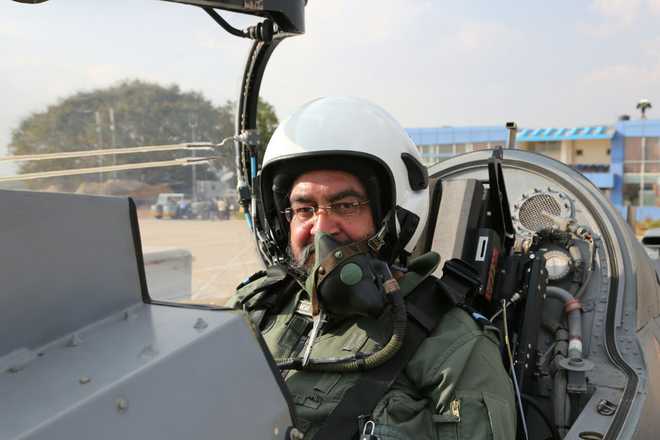



















































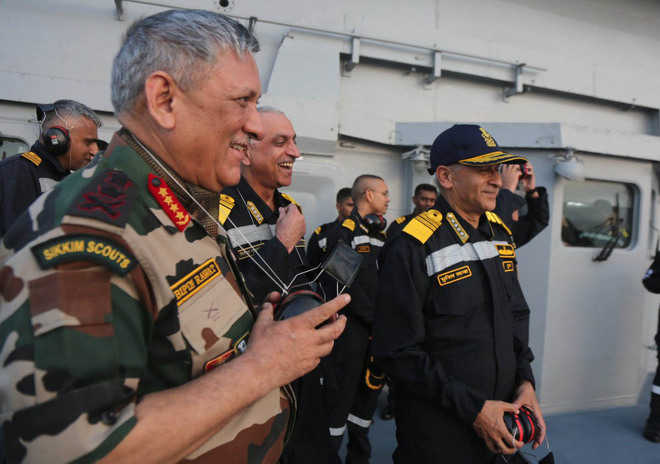
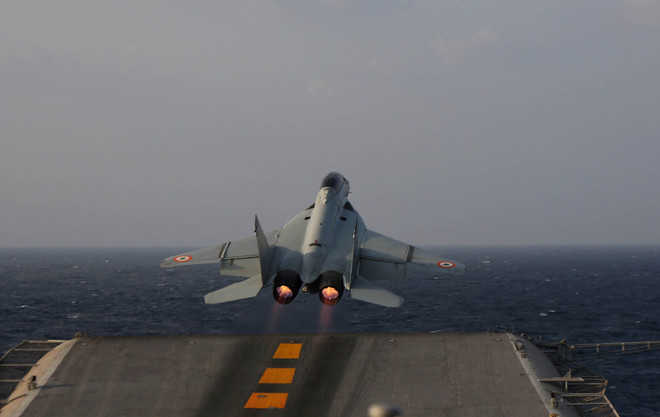














 RAVI KUMAR/HT
RAVI KUMAR/HT HT PHOTO
HT PHOTO
